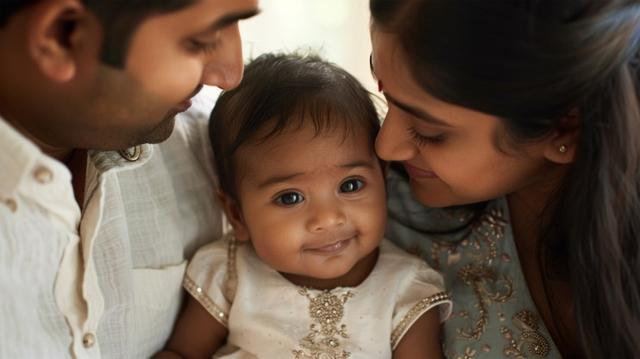50 years of the Expanded Programme on Immunization
In two articles published during the fiftieth year of the World Health Organization’s Expanded Programme on Immunization (EPI), Samarasekera and Shattock provide valuable insights into EPI’s remarkable impact on reducing childhood mortality and morbidity since its launch in 1974.
Shattock et al. present a detailed quantitative analysis of the lives saved and health gains attributed to vaccination.
They estimate that “since 1974, vaccination has averted 154 million deaths, including 146 million among children younger than 5 years of whom 101 million were infants younger than 1 year.”
The authors further emphasize the long-term benefits of vaccination, noting that “for every death averted, 66 years of full health were gained on average, translating to 10.2 billion years of full health gained.”
These findings underscore the transformative impact of the Expanded Programme on Immunization on global health outcomes.
Bill Moss of the International Vaccines Access Center (IVAC) calls this “one of humankind’s greatest achievements”.
Inherent uncertainties based on the modeling approaches, data limitations and gaps, and challenges in attributing causality over a 50-year time horizon do not diminish their significance.
Fresh challenges
Samarasekera highlights several fresh challenges as EPI moves into its next 50 years:
COVID-19 pandemic disruptions: The pandemic has led to 67 million children globally missing out on one or more vaccines. This has resulted in outbreaks of vaccine-preventable diseases, with measles outbreaks being reported in twice as many countries in 2023 compared to 2022. Due to pandemic disruption, many unimmunized children are now older than 2 years, requiring new approaches to reach them and prevent further outbreaks.Sustainable funding: Countries are facing challenges in sustaining funding for immunization programs due to debt crises, conflicts, and climate change.Improving collaboration during emergencies: There is a need for quicker access to vaccines and better coordination among stakeholders during humanitarian crises and outbreaks.Reaching the “last child”: Challenges persist in reaching children in conflict areas, active war zones, and those facing humanitarian crises, with immunization coverage in these settings being as low as 50-60%.While both articles recognize the urgent need to address these setbacks and reach underserved populations, they tend to emphasize the role of global agencies and donors in driving progress.
For example, Samarasekera highlights the importance of initiatives like Gavi, the Vaccine Alliance, which was established in 2000 “to close the equity gap in access to vaccines,” and the Accelerated Development and Introduction Plans, which “expedited vaccine introduction in Gavi-supported countries.”
While global plans and funding have been – and remain – undoubtedly crucial, this begs three questions:
How to carry out such coordinated action and advocacy?
Who will do it?
What, if anything, should be different, compared to what was done in the past?
Can we assume deployment?
Both articles acknowledge that today’s challenges are different, and that immunization strategies should be grounded in local realities.
Samarasekera’s report suggests exploring ideas such as involving community health workers more effectively, introducing newly approved vaccines (e.g., for malaria), and innovating vaccine delivery methods (e.g., microarray patches, single-dose vaccines).
Ephrem T. Lemango, for example, emphasizes the role of health workers : “They are the most trusted source of information” for communities. “If we can skill these community health workers to vaccinate, provide them the required vaccines, then the likelihood of reaching the last child could be much more imminent”.
Samarasekera also quotes O’Brien, who stresses that “every government that has had backsliding needs a plan, and most governments have made a plan and are starting to deploy. We have a very narrow window to get this completed.”
Neither article delves deeply into the specific strategies or mechanisms that connect global policy and funding to local action.
Can “deployment” be assumed?
There is wide recognition that local adaptation is a key challenge.
This is most obvious in zones of armed conflict or when faced with the breakdown of trust in vaccines or government
At the end of the day, it is health workers at the local levels that get the job of vaccination done.
They are also the first to see epidemic outbreaks and to recognize changes in community trust.
Does the future of vaccination require new ways of thinking and doing to adapt or invent strategies to lead to improved, sustained health outcomes?
Global advocacy for community health workers to be paid is undeniably important.
But paid to do what, how, and with what degree of recognition and support of their capacities, leadership, and expertise?
This is where learning from the Movement for Immunization Agenda 2030 (IA2030) may offer useful insights that complement the top-down, global-level efforts emphasized in the articles.
What is the Movement for Immunization Agenda 2030 (IA2030)?
Launched by the Geneva Learning Foundation in March 2022, the Movement is a global network of over 10,000 health workers from 99 countries who have pledged to work together to achieve the goals of the Immunization Agenda 2030, the global strategy adopted by the World Health Assembly in 2020.
Through peer learning and locally-led action, IA2030 members are sharing experiences, identifying root causes of immunization challenges, and implementing corrective actions tailored to their specific contexts.
What does that actually mean?
Wasnam Faye, a Senegalese midwife, moved the needle of vaccination coverage in a poor-performing remote health outpost from 8% to over 80%.
How did she do it?
At Teach to Reach, she met a doctor from the Democratic Republic of Congo who shared his EPI know-how with her, over WhatsApp.
She then invited and trained caregivers to become peer educators, also building on what she heard at Teach to Reach.
She then realized that she could speak about HPV vaccination for their daughters to mothers who came for cervical cancer screening.
In global health, individual case studies and lived experience are often dismissed as anecdotal evidence.
Each edition of Teach to Reach connects over 15,000 health workers, who share experience around their local challenges.
At that scale, the cumulative insights gained take us beyond anecdotes and enable us to document how change happens at the local levels.
Watch: Teach to Reach Insights Live with Orin Levine
Rethinking immunization’s learning culture: Capacity for change, innovation, and risk
To catch up and achieve the goals set for 2030, these articles suggest that a combination of increased funding, political commitment, and innovative strategies will be needed.
It is important to recognize that top-down control and directive management appear to have been key to how immunization programmes achieved impressive results in previous decades.
This explains why some EPI stakeholders may have an innovation challenge: why risk making changes or consider new models?
Addressing these underlying issues may require strengthening learning culture.
“Learning culture” is a new concept in global health that provides the missing link between learning and performance.
It measures the capacity for change and the leadership to recognize and support that capacity over time.
That requires sustained financing, including specific funding required to test and scale new models and approaches.
But who will risk funding new ways to tackle the challenges facing immunization programs, such as weak health systems, inadequate infrastructure, and community trust?
References
Faye, W., Jones, I., Mbuh, C., & Sadki, R. (2023). Wasnam Faye. Vaccine angels – Give us the opportunity and we can perform miracles. (IA2030 Case study 18) (1.0). The Geneva Learning Foundation. https://doi.org/10.5281/zenodo.7785244
Jones, I., Eller, K., Mbuh, C., Steed, I., & Sadki, R. (2024). Making connections at Teach to Reach 8 (IA2030 Listening and Learning Report 6) (1.0). Teach to Reach: Connect 8, Geneva, Switzerland. The Geneva Learning Foundation. https://doi.org/10.5281/zenodo.8398550
Jones, I., Sadki, R., Brooks, A., Gasse, F., Mbuh, C., Zha, M., Steed, I., Sequeira, J., Churchill, S., & Kovanovic, V. (2022). IA2030 Movement Year 1 report. Consultative engagement through a digitally enabled peer learning platform (1.0). The Geneva Learning Foundation. https://doi.org/10.5281/zenodo.7119648
Samarasekera, U., 2024. 50 years of the Expanded Programme on Immunization. The Lancet 403, 1971–1972. https://doi.org/10.1016/S0140-6736(24)01016-X
Shattock, A.J., et al. Contribution of vaccination to improved survival and health: modelling 50 years of the Expanded Programme on Immunization. The Lancet S014067362400850X. https://doi.org/10.1016/S0140-6736(24)00850-X
Share this:
#AndrewJShattock #BillMoss #COVID19Pandemic #EphremTLemango #EPI #ExpandedProgrammeOnImmunization #globalHealthOutcomes #IA2030 #KateOBrien #MovementForImmunizationAgenda2030 #UdaniSamarasekera #vaccination



